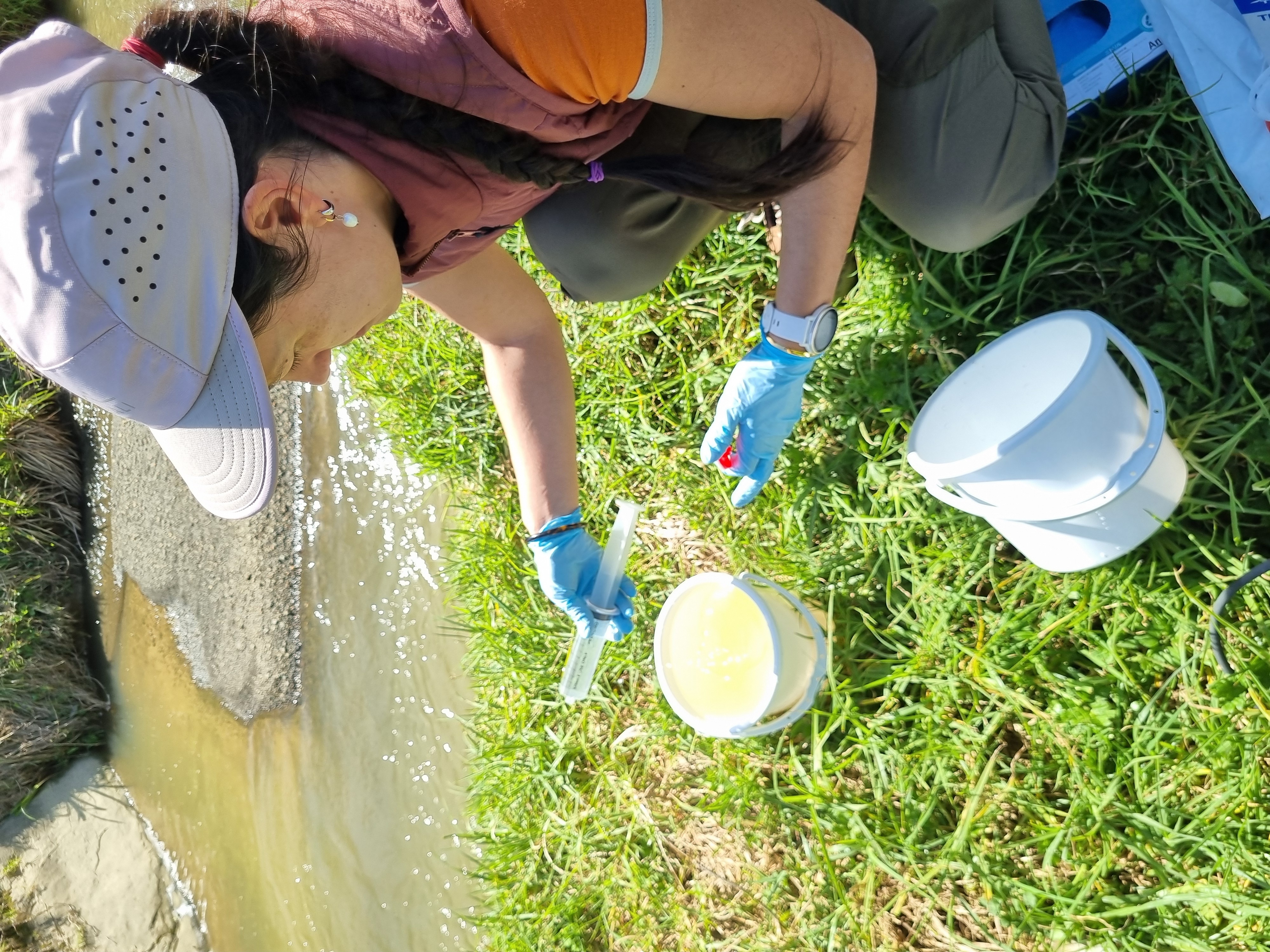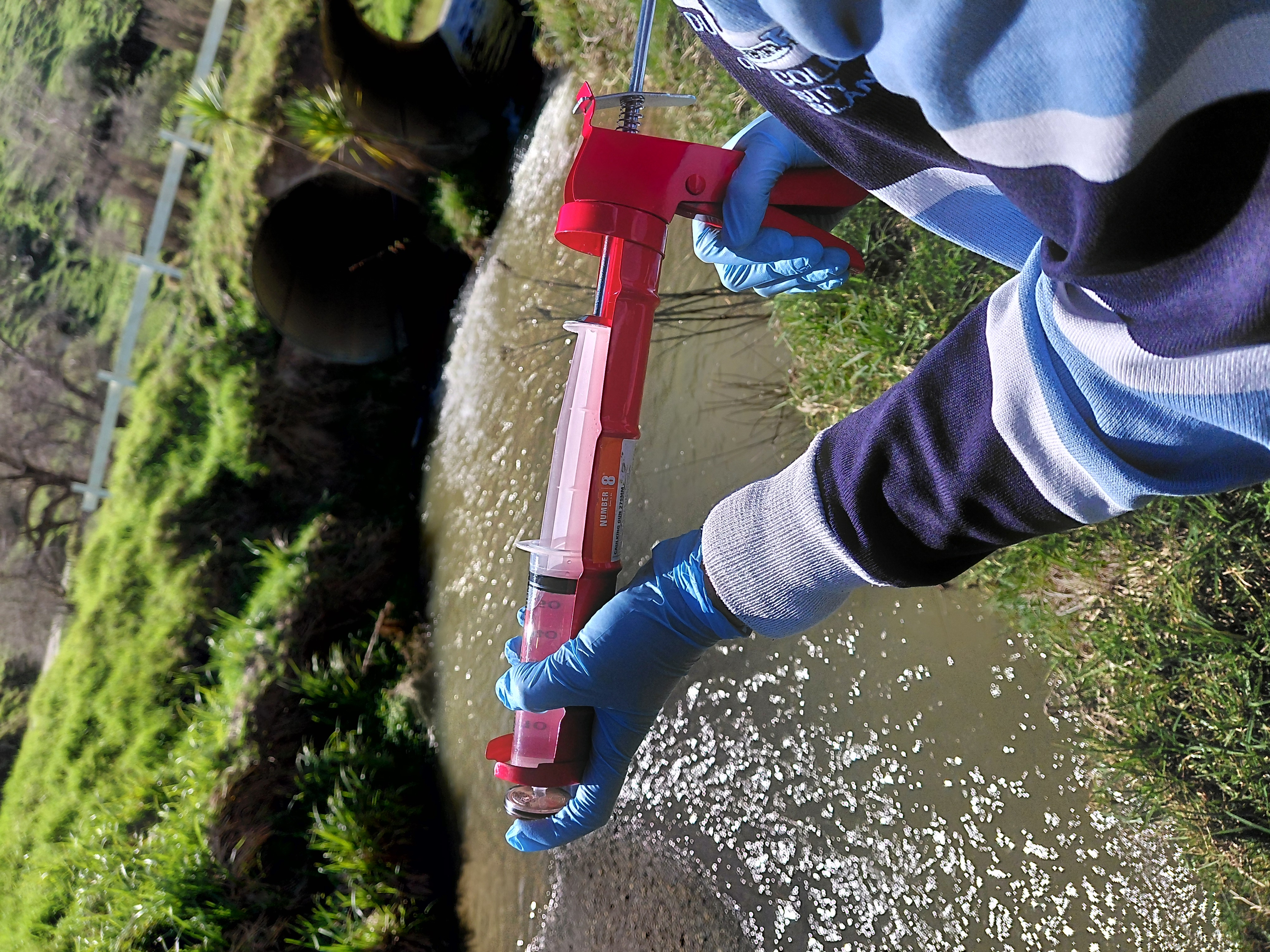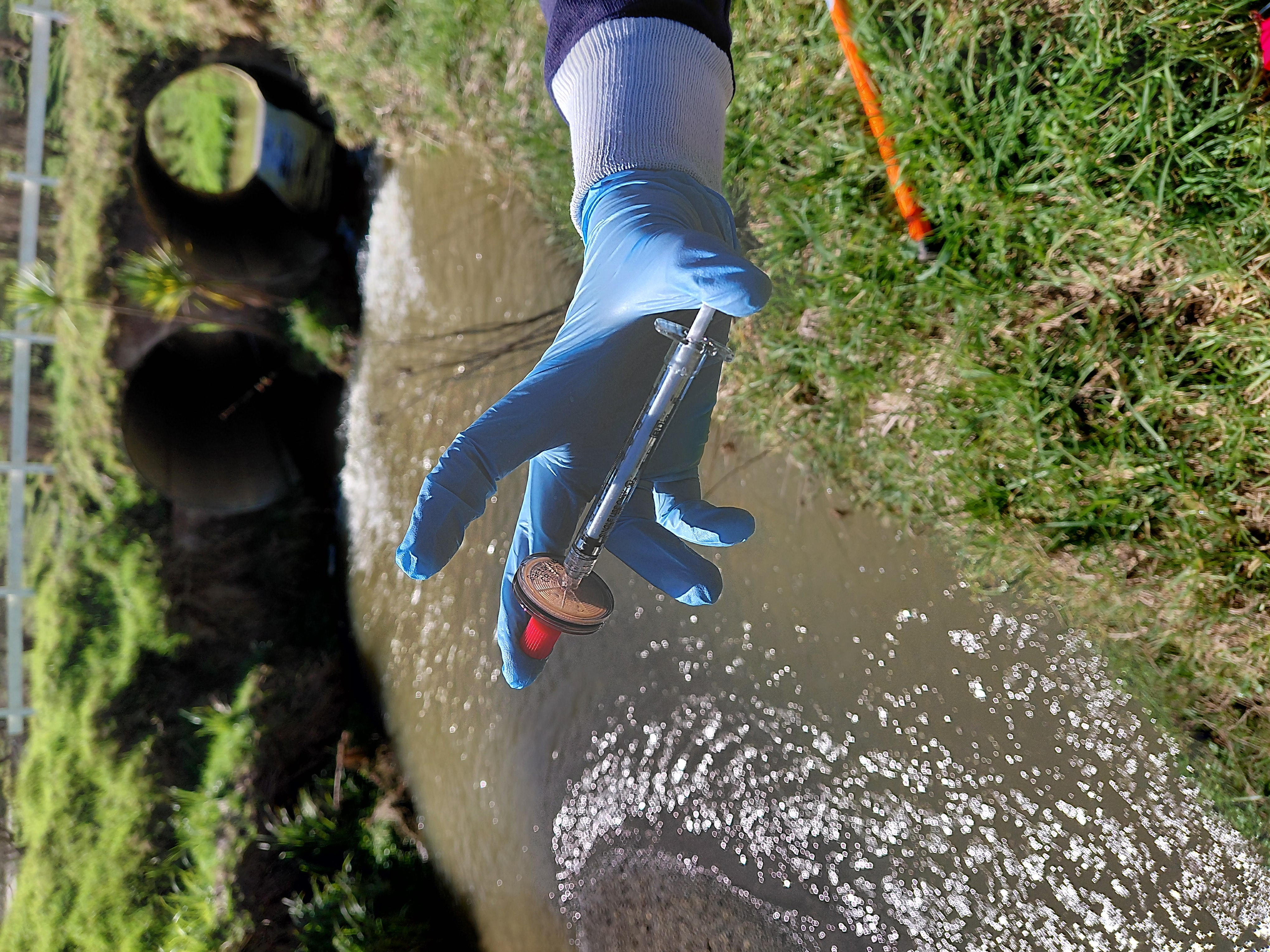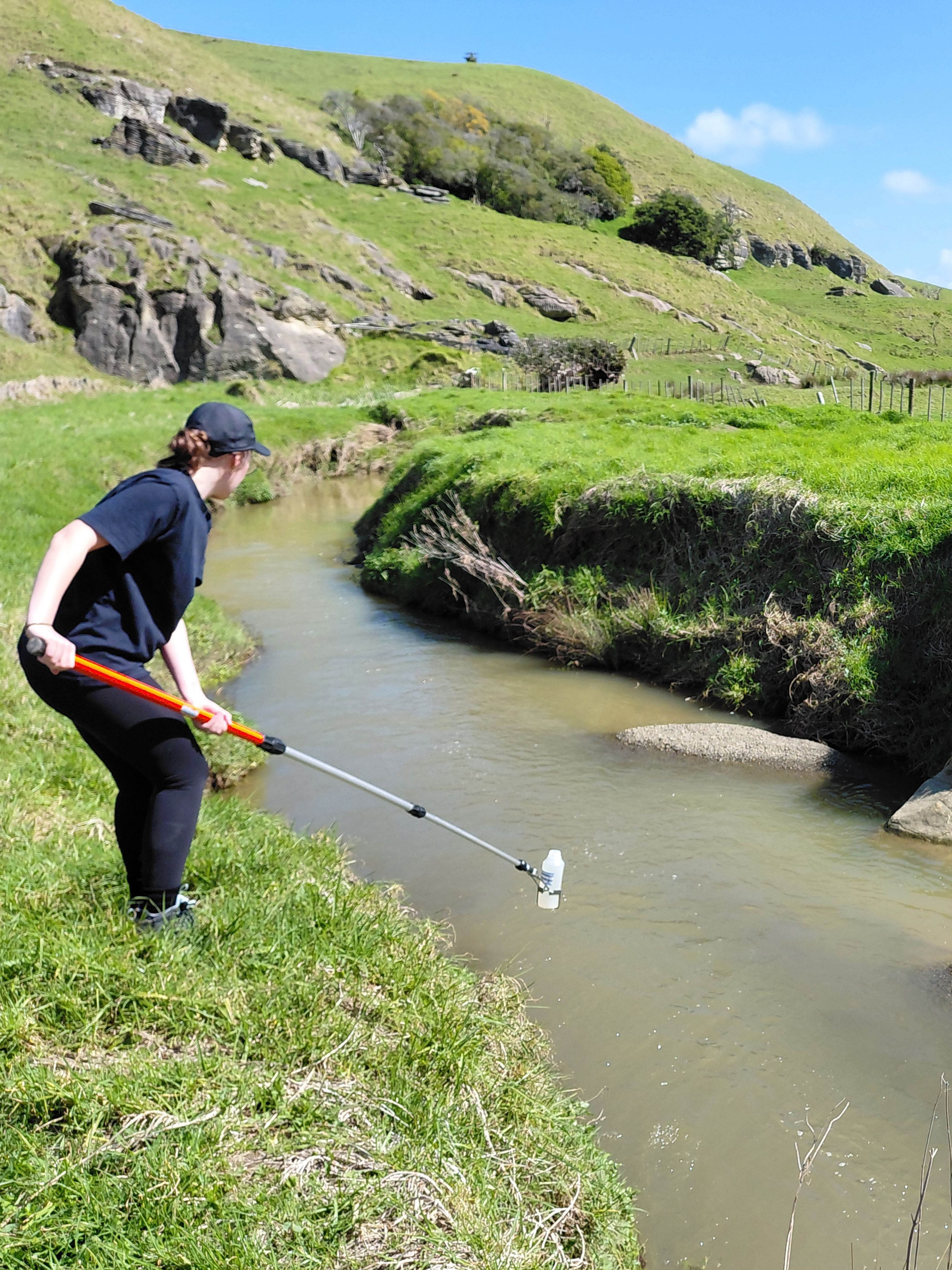
Hands-On with eDNA in Water Sampling: A Day in the Field
By Carla Johnstone, Client Services Manager – Environmental
It was a classic spring morning as members of the Hill Labs Environmental Team departed the Hamilton office for a full day of eDNA water sampling. With the recent launch of our eDNA in water testing service, this was a valuable opportunity to get hands-on with the process and deepen our understanding of what our clients experience in the field.
Bundled into the car, we made our way to rural Waikato, headlights cutting through the early morning mist. Our team was invited to assist Beca, who was conducting routine water quality testing at 12 freshwater stream sites. On this occasion, they were trialing eDNA sampling at eight of those locations.
Dr Marc Dresser, Technical Director at Beca, shared his appreciation for the collaborative effort during the sampling day with Hill Labs, saying:
"It’s great to have the opportunity to work alongside Hill Labs for this sampling day. Being able to chat about quality expectations of samples received at the lab, sampling methods, and on-site constraints is really adding to our collective knowledge.”
Why Test for eDNA?
Environmental DNA (eDNA) testing allows for the detection of organisms present in a water body without needing to see or capture them directly. It’s a powerful tool for biodiversity monitoring, biosecurity, and ecological research. By analysing DNA fragments shed by organisms into the environment, we can gain insights into species presence and ecosystem health.
The Sampling Process
Sampling for eDNA involves pushing a known volume of water through a filter until the filter becomes clogged. Preservative is added in the field to stabilse the DNA, and once returned to the lab the DNA trapped on the filter is extracted and analysed. On this trip, we used 5 µm filters, ideal for the turbid conditions expected in agricultural areas following recent rainfall.
At the first site, our team got stuck into the six replicate samples with a solid plan. We made a few quick tweaks early on for a more streamlined approach at the next stop. By the time we hit the second location, everything was running like clockwork, even with curious cows and quad bikes cruising past to check us out.
Despite the murky water stirred by rain, our team adapted quickly. The goal is to clog the filter, but ideally pushing through as much water as possible to maximise DNA capture.
After a well-earned lunch break, we arrived at a dairy farm just as 200 cows were heading to the milking shed. We were advised to remove high-vis gear and keep voices low - cows don’t appreciate surprises. We waited quietly under the bridge, laughing as the herd passed overhead.
At the final site, we climbed fences with gear in tow to reach the culvert. This location had the best water quality of the day, allowing us to use finer pore filters and obtain excellent sample volumes.
Reflections from the Field
It was a rewarding day in the field. Our team gained valuable hands-on experience and developed a deeper appreciation for the time, effort, and adaptability required by our clients who carry out water quality monitoring regularly. Seeing the process firsthand reinforced the importance of collaboration, preparation, and resilience in achieving reliable environmental data.
If you’re interested in eDNA in water testing, please get in touch by emailing env.csm@hill-labs.co.nz.We have more information available on our website and would be happy to discuss how this service could support your environmental monitoring needs.






